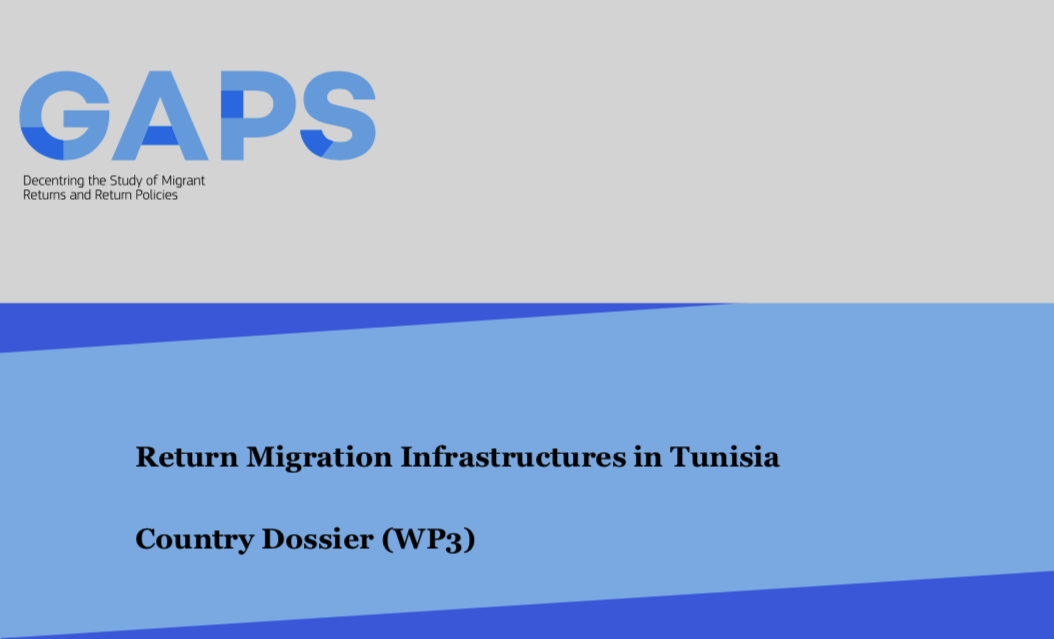Return Migration Infrastructures in Tunisia - WP3 Country Dossier
Authors:
Hassen Boubakri, Hanen Ben Othman, Malak Jedidi | University of Sousse
Executive Summary:
Tunisia, due to its geographic proximity to Europe and historical emigration trends, serves as a strategic case study to examine the Return Migration Infrastructures (RMI). The Tunisia RMIs include a wide range of institutions, actors, emerging technologies, and ad hoc procedures that govern and facilitate the return of Tunisian nationals abroad—both voluntary and coerced. The study combined desk research, including analysis of secondary sources such as national statistics, surveys, policy briefs, and reports from international organisations, along with insights from fieldwork on returnees. However, accessing data on return migration in Tunisia, worsened by coerced repatriations of Sub-Saharan Africans, remains obscure due to political sensitivity, limited transparency, and restricted access.
Tunisia has experienced various waves of emigration, especially after the 2011 revolution, driven by unemployment, economic instability, and political unrest. By 2024, nearly two million Tunisians lived abroad—mainly in France, Italy, and Germany. Both voluntary returns (due to family or economic reasons) and forced returns of Tunisian migrants (deportations, expulsions) are common. Forced returns are often linked to vulnerabilities, such as irregular status, insecurity, or health issues. Return migration patterns have fluctuated, while the forced returns, particularly from Italy and Germany, have increased in recent years. Deportation often involves detention and is accompanied by allegations of mistreatment, highlighting human rights concerns.
Tunisia’s Return Migration Infrastructures main characteristics are as following.
· It involves a wide network of actors including national ministries (Interior, Social Affairs, Transport, Employment), agencies like the Office of Tunisians Abroad (OTE) and National Observatory of Migration (ONM), as well as international partners such as GIZ (Germany), OFII (France), and IOM.
· The Tounesna program is Tunisia’s flagship reintegration initiative. It supports returnees—regardless of whether they returned voluntarily or by force—through counselling, job placement, and financial aid. However, only 79 returnees benefited from the program in 2022, reflecting accessibility issues.
· Returnees primarily arrive via airports in Enfidha, Tunis, Djerba, and Monastir. Security dominates the reception process, with returnees often facing interrogation and lacking follow-up support. Tunisia uses biometric systems, but lacks a centralized database for tracking and supporting returnees post-arrival.
· There are major coordination gaps between Tunisian institutions, NGOs, and international partners. NGOs which play a crucial role in protecting returnees' rights, yet remain underfunded and under-recognized.
Please find the entire DOI report by clicking the button below:

